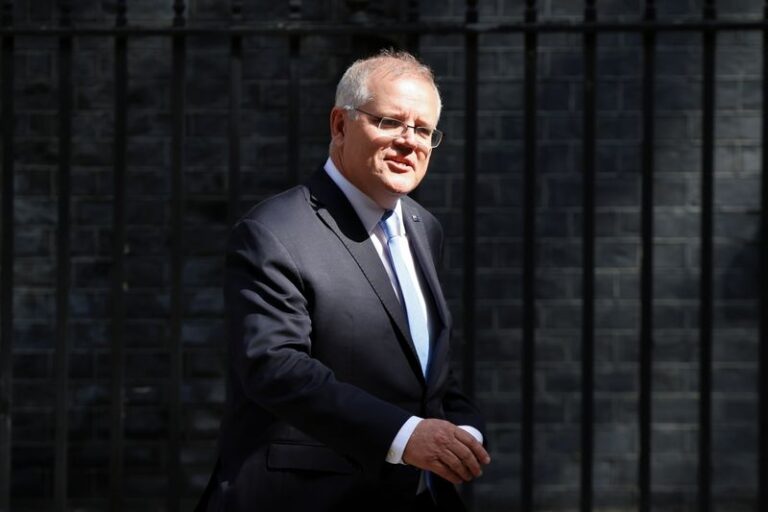
SYDNEY, (Reuters) – Australian Prime Minister Scott Morrison promised on Saturday to be more empathetic if he wins re-election, as his government continues to trail the opposition Labor Party a week before a general election.
Australians go to the voting booths on May 21, with recent polls showing Morrison’s Liberal-National coalition on track to lose to centre-left Labor, ending nine years of conservative government.
Morrison, whose standing with voters has plunged since mid-2020, acknowledged on Friday being a “bulldozer” but said he would change after the election.
He continued that theme on Saturday, telling reporters on the campaign trail in Melbourne that what mattered most as prime minister was to “get the job done”, but promising to “explain my motives and my concerns and empathise a lot more” in the future.
Among criticisms of Morrison in his time in office have been his handling of bushfires that killed 24 people and left thousands homeless, and his response to shortfalls of COVID-19 vaccines and then rapid antigen tests.
Asked why he had waited until the final week of the campaign to tell voters he would change, Morrison said: “I have been listening carefully to people”.
Labor leader Anthony Albanese campaigned on Saturday in Darwin where he announced that, if elected, he would spend A$750 million ($520 million) to strengthen Australia’s universal healthcare scheme.
Labor promises a “Strengthening Medicare Fund” to boost the scheme and address what it claimed was a crisis in care provided by general practitioners across the country.
“Universal healthcare is something that is a Labor creation, Labor will always defend it and Labor will always strengthen it,” Albanese told reporters.
The party sees its protection of Australia’s cherished Medicare system as a key differentiator between it and the government, which has campaigned strongly on claims of superior economic management and national security.






